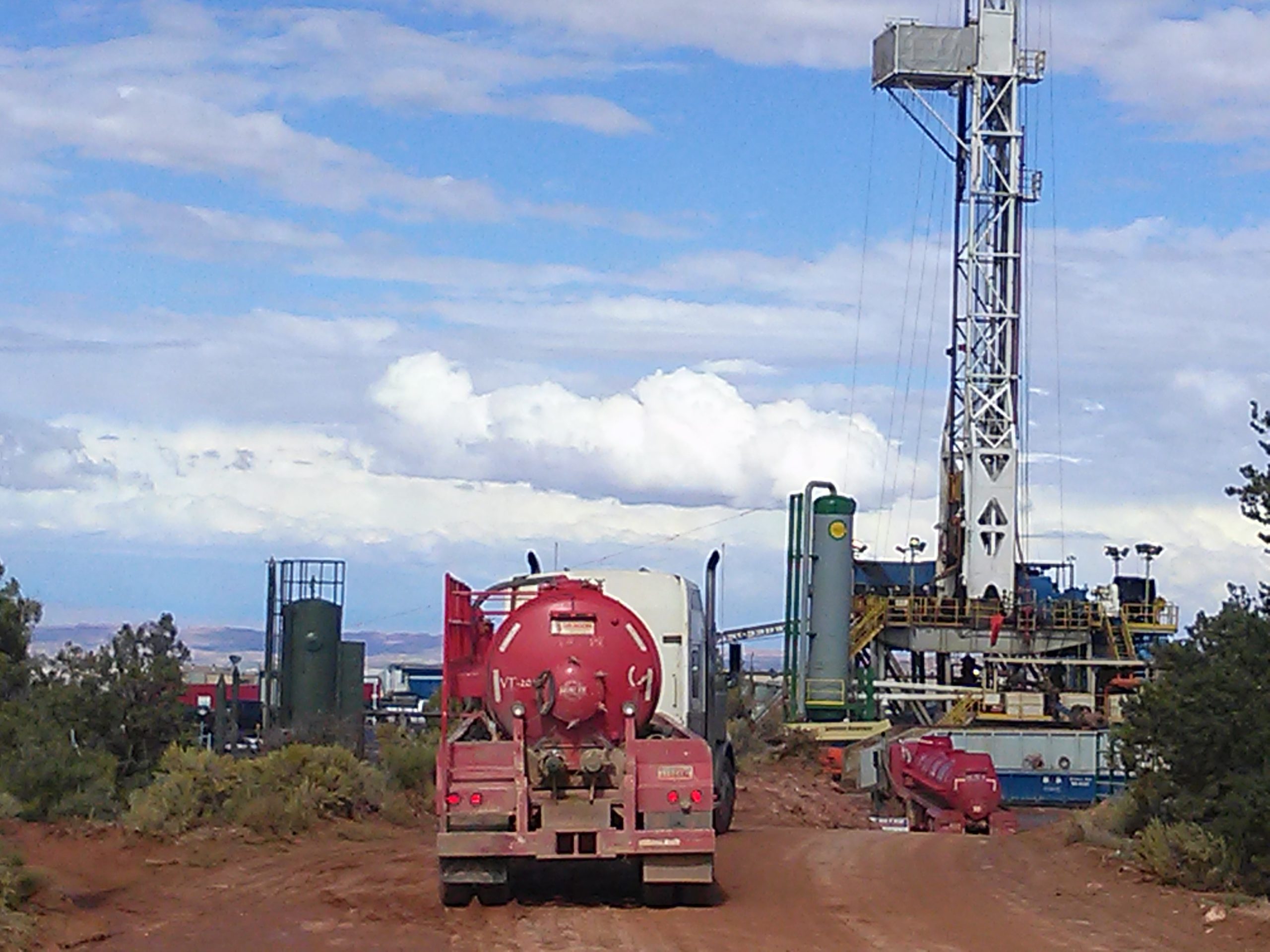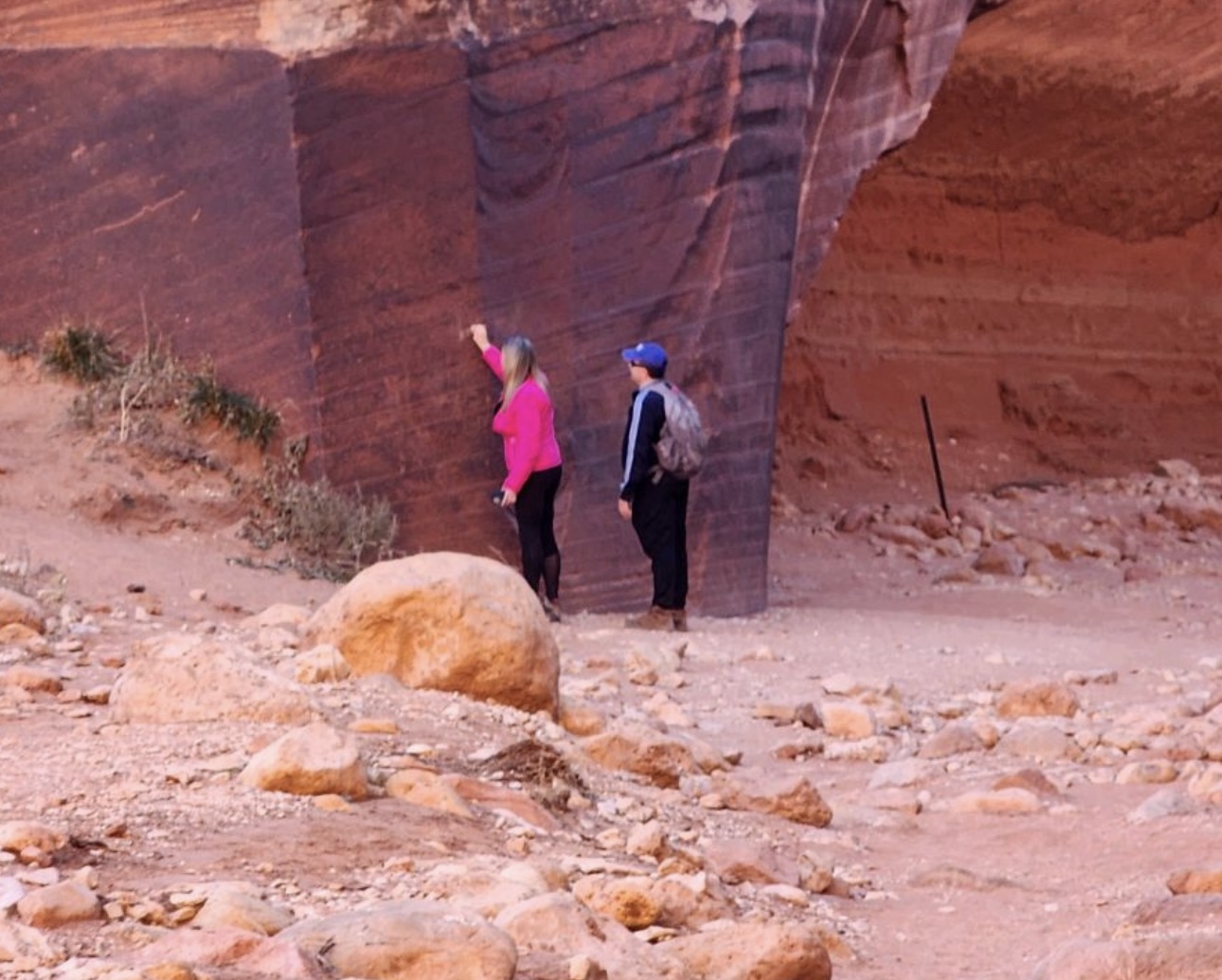Some information may be outdated.
In response to a drop in oil prices, producers across the region are scaling back their operations, while communities that have grown accustomed to oil industry jobs and revenue are beginning to tighten their belts.
Grand County Council member Lynn Jackson told the Moab Sun News that “it almost goes without saying” that there will be a slowdown in the region due to falling oil prices. But that’s a normal pattern for resource industries to experience highs and lows based on worldwide commodity prices, he said.
“Just because this is the pattern doesn’t mean a community shouldn’t take advantage of the resource when they have the opportunity,” Jackson said. “It’s just a matter of understanding that these cycles occur and making smart decisions with this in mind.”
Conventional crude oil producers and communities in the Uintah Basin have been hit the hardest, but local operators have also scaled back operations.
Developers of nonconventional hydrocarbon sources such as oil shale and tar sands have been the least affected by the drop in prices, mostly because they aren’t yet in the production phase.
Grand County Council vice chair Chris Baird said that he is bracing himself for significantly less mineral lease royalties for special service districts.
“If the service districts see a big cut in revenue, it will present some major challenges in paying off various bonds and maintaining operations,” Baird said. “This scenario would exemplify the danger in establishing ongoing debt using boom cycle funding.”
Jackson said that it’s key not to incur long-term debt that requires payment from mineral lease revenue. He isn’t aware of any county special service districts acquiring additional debt based on increased mineral lease royalties of the past few years.
Baird said that the Grand County Recreation Special Service District has taken on debt over the past few years – both with the aquatic center and the ball field at the Old Spanish Trail Arena. The Canyonlands Care Center is particularly dependent on mineral lease funding, he noted.
In the Uintah Basin, the Vernal Express reported last week that Halliburton was said to have laid off 13 employees, while Newfield Production cut 80 jobs in neighboring Duchesne County. Newfield also announced the laying down of all its Uintah Basin derricks at the end of January.
Fidelity Exploration & Production, the company developing the Big Flat area near Dead Horse Point and Canyonlands National Park, is also scaling back.
“Low oil prices and the potential for the company to be (put up for sale) in the near future have impacted the pace of activity in the Big Flat area,” Fidelity spokesperson Tim Rasmussen said.
Rasmussen said that Fidelity has removed its drilling rig from the area, and has put plans to market its company on hold.
“For 2015, Fidelity plans to reduce operating costs and minimize investments in the first half of the year to allow service costs to better align with the lower commodity price environment,” Rasmussen said. “Fidelity then plans to bring a rig back into the area for the second half of the year to target high- priority drilling opportunities that will maximize the value of the company.”
Fidelity recently completed seismic work about 15 miles south of Moab on Hatch Point, near the Canyon Rims Recreation Area. Rasmussen said that drilling exploration, if justified by the seismic data, would likely be conducted in 2016, but that ultimately the market would be the deciding factor.
Developers of unconventional crude sources such as oil shale and tar sands have been the least impacted, primarily because they aren’t yet in the production phase and initial investments have provided the capital for their projects.
US Oil Sands CEO Cameron Todd told the Moab Sun News that his company’s project “is relatively unaffected by the current low oil prices.”
“Unlike most oil producers, US Oil Sands does not rely on the sale of current oil production to fund its capital investment on this project,” Todd said.
The Canadian-owned US Oil Sands has leased 32,000 acres of school trust lands in the Book Cliffs to strip mine tar sands. The company estimates the area, including 26,000 acres in Grand County, has as much as 190 million barrels of recoverable oil.
Jeff Hartley, spokesperson for Red Leaf Resources, acknowledged that his company has slowed construction on its commercial demonstration project – or Early Production System – near Seep Ridge in the Book Cliffs. The system is designed to demonstrate the economics and scalability of its patented EcoShale process for extracting oil from shale.
Hartley said that, “Low oil prices contributed to the decision making process,” but that the slowdown in construction was due to its ability to renegotiate construction contracts during a softer labor market.
“We definitely want to emerge from our scheduled post (Early Production System) analysis and enter commercial production in better oil prices than today,” he said. “But we can’t bank our construction time lines on such unknowns as when oil prices might be at $60 or $70 or $80.”
Jackson said he doesn’t think that nonconventional hydrocarbons like tar sands will ever be developed on a large scale. He cited the OPEC oil embargo of the 1970s as an example. At the time, high oil prices created an interest in developing unconventional crude sources.
“Once OPEC figured out that would not in their best interests, they increased production, prices dropped and the oil shale development became uneconomic,” Jackson said. “I think we’re seeing that again today by worldwide oil producers. We will see production increased and prices dropped to take that development off of the table.”
Tar sands developer says project “relatively unaffected”
Just because this is the pattern doesn’t mean a community shouldn’t take advantage of the resource when they have the opportunity … It’s just a matter of understanding that these cycles occur and making smart decisions with this in mind.
Appreciate the coverage? Help keep local news alive.
Chip in to support the Moab Sun News.





